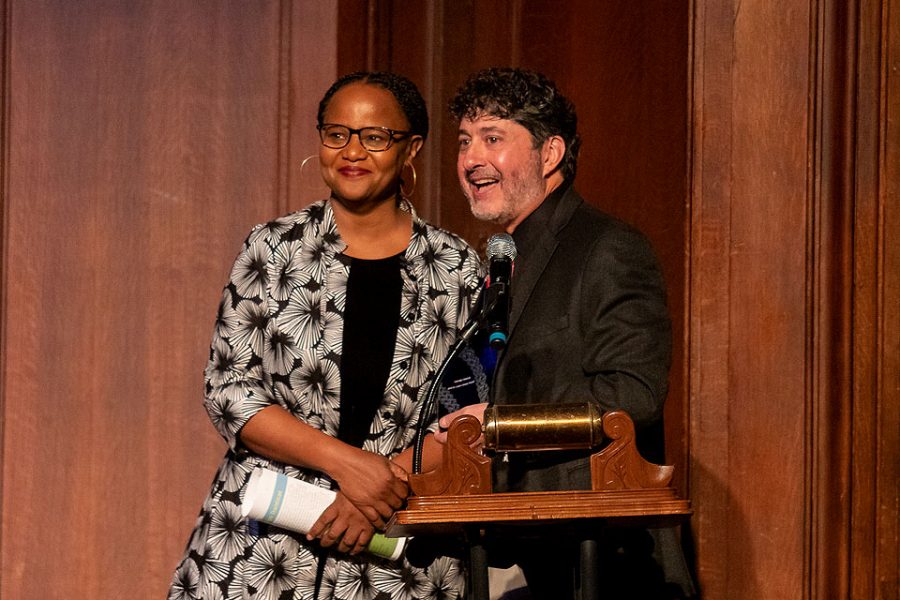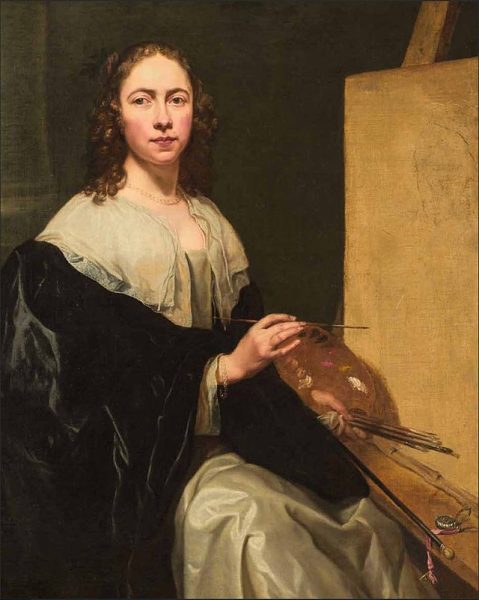St. Louis Literary Award Honors Edwidge Danticat
On the evening of Oct. 24, at the Sheldon Concert Hall, acclaimed Haitian-American author Edwidge Danticat accepted the 52nd St. Louis Literary Award from the Saint Louis University Library Associates. This honor has been awarded to many distinguished recipients, including Stephen Sondheim and Margaret Atwood in 2018 and 2017, respectively. According to the Library Associates, the award’s mission is to recognize “a living writer with a substantial body of work that has enriched our heritage by deepening our insight into the human condition and by expanding the scope of our compassion.”
Danticat’s works have ranged from essay collections and children’s books to full-length novels and a memoir—all of which focus on the lives of Haitian individuals both at home in Haiti and on American soil. Her most well-known works include novels “Breath, Eyes, Memory” and “The Dew Breaker,” short story collection “Krik? Krak!” and memoir “Brother, I’m Dying.”
Although Danticat has won various awards, including the American Book Award in 1999, National Book Critics Circle Award in 2007 and a MacArthur “Genius” Fellowship in 2009, she was humbled by the Library Associates’ recognition. As she said in her acceptance speech at the ceremony, “It feels surreal to get this award.” Her speech followed Haitian dance performances by the Katherine Dunham Children’s Workshop and the SLU Student Dance Troupe, as well as poetry readings in Haitian Creole and English translations. Danticat emphasized the importance of these performances, saying they were “all of the hallmarks of celebrations back home in Haiti,” but she also recognized a heaviness she felt in receiving the awards when her country is in great turmoil.
Nonetheless, Danticat answered each question by moderator Tcherlie MacEnat, SLU Law student, with enthusiasm. On her book “Breath, Eyes, Memory,” which served as SLU’s 2019 campus read, Danticat said, “A first book is like a first child.” She explained that this first published work of fiction taught her how to be a writer and continues to be a work she holds close to her heart.
The morning after this ceremony, Danticat graciously met with students on the second floor of SLU’s Pius Library over coffee and pastries. French and English students alike gathered to meet and converse with the multilingual author. Afterwards, Danticat moved to the Cook Hall Auditorium for the always-anticipated Craft Talk, where the annual winner of the St. Louis Literary Award sits down for a more casual discussion of their method of literary craft.
The Craft Talk’s moderator this year was associate professor of English Joya Uraizee, Ph.D., whose research and teaching focuses on postcolonial literature. As the two women were settling into their chairs on stage and struggling with their microphones, Danticat playfully remarked, “This is also a lesson in craft. It’s never perfect.” This set the tone for a comfortable, candid conversation on the process of her artistry.
Danticat’s wisdom on the writing process primarily centered on the idea of allowing the work to guide the author and borrowing from other forms of art in order to paint colorful images. “Sometimes you are just haunted by an image,” she said in response to Uraizee’s question about the very vivid images of trauma found in many of her novels.
When answering questions from the audience on the importance of language in her compositions, Danticat said that all Creole languages are very visual because the speakers originally needed to speak in a way that could not be understood by colonial oppressors. “It’s vivid, it’s visual and it’s nuanced,” she said, lending to the expressive art she creates through her writing. She also adds that although people often accuse multilingual writers who use phrases in different languages as perpetuating exotica, sometimes there is no equivalent in English of the concept she wants to portray.
At the event, Danticat said, “I think the most important thing is to be someone on whom nothing is lost, to be a good observer of your life, to find things you are passionate about,” in response to a high schooler in the audience’s request for advice. She then added, “You might as well pick something [to write about that] you want to spend time with for a couple years and that you’ll be miserable without.”
Danticat’s newest work from this past summer, titled “Everything Inside,” is a collection of short stories that tackles the difficult themes of loss, grief and coming to terms with death. It has received excellent reviews. Moving forward, she will continue to do what she loves most—writing. “This award will certainly help keep my candle lit,” she said, “and for that, I am very grateful.”
Your donation will support the student journalists of Saint Louis University. Your contribution will help us cover our annual website hosting costs.











